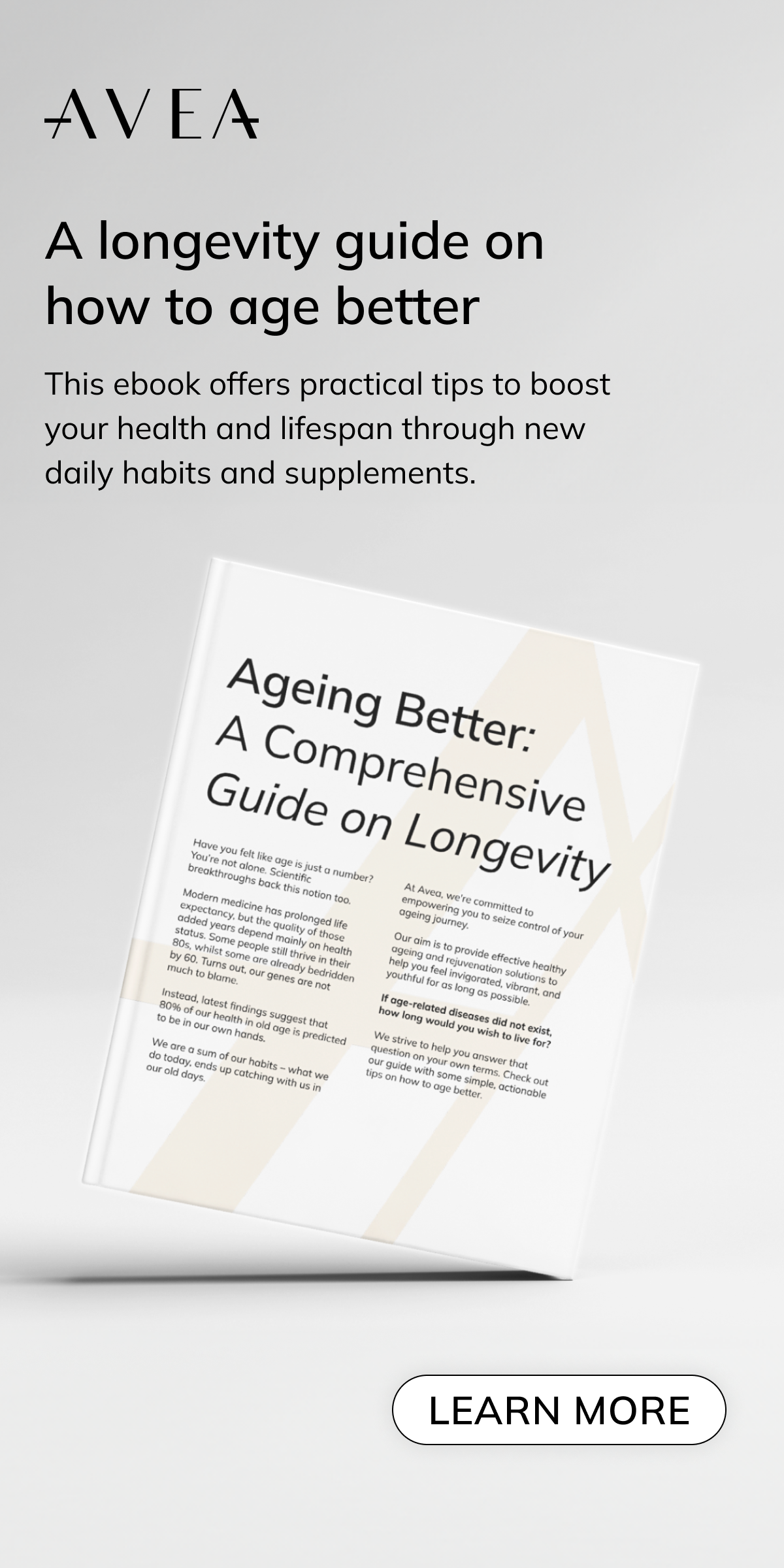Dr. Mary Claire Haver is on a mission to reshape the way we approach menopause, turning a traditionally challenging time into a period of empowerment and health optimisation.
Considering half of the world population will experience it at some point, why is there such silence and stigma around it? In 2023, whilst 85% of women reported experiencing menopausal symptoms, only about 10.5% got any treatment or help.
This clear gap in understanding and assistance highlights the urgent need for more open conversations and accessible information. In this Avea article, we explore advice from Dr. Haver, in an attempt to enlighten both women and men about menopause.
In this article
Who is Dr. Mary Claire Haver?
From OB/GYN to menopause specialist
Dr. Mary Claire Haver is a pioneering figure in the field of menopause care, transforming her career from a traditional OB/GYN to a dedicated menopause specialist. Her journey into this specialised area was not just professional but deeply personal.
Despite her extensive medical training, Dr. Haver discovered a significant gap in her education regarding menopause management—a topic that receives surprisingly little to no attention in medical curriculums.
A personal and professional awakening
Compelled by her own menopausal experience, which highlighted the lack of comprehensive care and support for women undergoing this natural biological transition, Dr. Haver decided to further her education in nutrition and wellness.
Recognising the powerful impact of diet and lifestyle on menopausal symptoms, she went back to school, diving deep into the study of culinary medicine. This additional expertise equipped her with the tools to offer a more holistic approach to menopause care, focusing on evidence-based dietary and lifestyle modifications alongside medical treatments.
Championing menopause education and support
Dr. Haver’s personal journey through menopause not only transformed her professional focus but also ignited her passion for advocating for better menopause education and support. By sharing her knowledge and personal insights, she aims to empower women with the information and resources they need to navigate menopause confidently and healthily. Through her work, Dr. Haver is redefining menopause care, advocating for a shift towards more informed, compassionate, and comprehensive support for women worldwide.
We’re working out to be strong, to have a strong heart, to have a strong mind, and to have strong muscles and bones. We’re not working out to be thin, that is a fallacy.
Dr. Haver
The physical and mental impact of menopause
Hormonal changes and their effects
Menopause is a significant biological event in a woman’s life, characterized by the end of menstrual cycles and a decline in reproductive hormones, primarily estrogen and progesterone.

This hormonal shift triggers a range of physical symptoms that can profoundly affect a woman’s health. Commonly, women experience hot flashes, night sweats, and changes in sleep patterns, which can disrupt daily life.
But that’s not all, hormonal changes can lead to decreased bone density, increasing the risk of osteoporosis and fractures. The decline in estrogen also affects the skin, causing it to become thinner and less elastic, and impacts the cardiovascular system, potentially leading to an increased risk of heart disease.
Vaginal dryness and changes in urinary function can significantly affect sexual health and lead to discomfort. These physical changes underscore the systemic impact of hormonal fluctuations during menopause, highlighting the need for effective management strategies to mitigate these effects and maintain quality of life.
Menopause and mental health
The impact of menopause on mental health cannot be overstated. The hormonal changes can lead to increased vulnerability to depression and anxiety, compounding the challenges faced during this period.
Many women report feelings of sadness, irritability, and mood swings, which can be attributed to the fluctuating levels of estrogen and progesterone. The stress of dealing with physical symptoms, such as sleep disturbances and hot flashes, can exacerbate mental health issues.
The onset or worsening of cognitive difficulties, commonly referred to as “brain fog,” further contributes to the psychological burden, affecting concentration, memory, and cognitive function.
This complex interplay between hormonal changes and mental health shows the importance of recognising and addressing the psychological aspects of menopause.
Providing support through counselling, lifestyle modifications, and, when appropriate, medication, is crucial to helping women navigate this challenging transition and improve their overall well-being.

Estrogen plays a crucial role in maintaining the health of various bodily systems, including the cardiovascular, skeletal, and central nervous systems. As Dr. Haver’s research shows, the reduction in estrogen can lead to changes in cholesterol levels and blood pressure, contributing to an increased risk of heart disease.
Exercise beyond menopause
Dr. Haver emphasises the crucial role of exercise in managing menopause and its symptoms. Here’s a summary of her specific advice on incorporating physical activity into daily life for women navigating through midlife and menopause:
1. Combat changes in body composition
Importance:
Exercise is vital in combating the inevitable body composition changes during menopause, such as abdominal weight gain.
Benefits:
- Prevents weight gain.
- Increases lean body mass while reducing fat, thereby improving overall body composition.
- Enhances muscle strength and functional capacity.
Best practices:
High-intensity resistance training is particularly effective in reducing belly fat and increasing lean muscle mass.
2. Decrease the risk of cardiovascular disease
Impact:
Regular physical activity significantly lowers the risk of heart disease and improves vascular functioning.
Key findings:
- Reduction in diastolic blood pressure.
- Improvement in vascular function, lipid profiles, glycemic control, and insulin resistance.
Exercise type:
A combination of aerobic and resistance training is necessary to maximise health benefits, not just light cardio like occasional walking.
3. Improve bone mass
Critical for ageing:
Enhancing bone mass is vital for women in midlife to reduce the risk and prevalence of bone fractures.
Solution:
Resistance training is the most effective way to slow down the loss of bone mass with age.
Aerobic exercise limitations:
While walking is a popular choice among aging women, it lacks the mechanical stress needed to improve bone density. High-intensity resistance exercises are key to increasing bone mass and decreasing fracture risk.
Nutrition for menopause
Dr. Haver stresses the importance of nutrition in managing menopause symptoms and promoting overall well-being. Here’s a detailed guide on the foods to include in your diet and those to limit or avoid:
Foods to embrace:
- Fats: Opt for healthy fats like olive oil, coconut oil, MCT oil, butter, ghee, avocado oil, and sesame oil to support hormone health.
- Proteins: Incorporate lean proteins such as ground beef, chicken, turkey, eggs, lean pork, and fatty fish like salmon, trout, tuna, and shellfish for muscle maintenance and repair.
- Fruits: Choose low-glycaemic fruits like avocado, strawberries, blueberries, and raspberries to satisfy sweet cravings without spiking blood sugar.
- Leafy greens: Load up on spinach, kale, lettuce, dill, and mustard greens for their high vitamin and mineral content, essential for bone health and reducing inflammation.
- Other vegetables: Include a variety of vegetables like cauliflower, broccoli, cabbage, tomatoes, bell peppers, cucumbers, onions, and carrots for fiber and nutrients.
- Nuts: Snack on nuts such as cashews, pistachios, almonds, and peanuts for healthy fats and protein.
- Seeds: Incorporate seeds like pumpkin, sesame, sunflower, flax, and chia into your diet for their omega-3 content and fiber.
- Dairy: Choose high-fat dairy like heavy cream, cheese, sour cream, plain Greek yogurt, and nut milk for calcium and probiotics.
- Tea: Drink teas such as black, green, oolong, and chamomile for their antioxidant properties.
- Fresh herbs: Use fresh herbs like ginger, garlic, parsley, thyme, and basil to enhance flavor and provide health benefits.
Foods to limit or avoid:
- Sweeteners: Avoid added sugars and artificial sweeteners that can disrupt hormone balance and contribute to weight gain.
- Food additives: Stay away from artificial additives (flavors, colors, and preservatives) that may have negative health effects.
- Alcohol: Limit intake of beer, wine, and spirits, which can exacerbate menopause symptoms and impact liver health.
- Processed foods: Cut back on refined grains, fried foods, and processed meats that are high in unhealthy fats and additives.
- Vegetable oils High in Omega-6: Reduce consumption of soybean, sunflower, safflower, and corn oil to balance omega-6 and omega-3 fatty acid intake.
- Sugar-sweetened beverages: Avoid sweet tea, colas, soft drinks, and juice that are high in sugar and offer little nutritional value.
Hormone Replacement Therapy
Hormone Replacement Therapy (HRT) involves administering synthetic or bioidentical hormones to replace the declining levels of estrogen and progesterone during menopause. It aims to alleviate menopausal symptoms, improving overall quality of life for women experiencing hormonal changes.
With the North American Menopause Society’s (NAMS) recent updates on HRT, Dr. Haver emphasises the importance of tailored approaches based on the latest research.
Key points on Hormone Therapy types
- Estrogen therapy: Ideal for women without a uterus, focusing on alleviating symptoms by replacing estrogen no longer produced naturally.
- Combination therapy: Essential for women with a uterus, combining estrogen and progestogens to prevent the overgrowth of the uterine lining and reduce the risk of uterine cancer.
- Testosterone therapy: An additional option, especially for addressing issues like decreased libido, underscoring the variety of therapies available beyond estrogen and progesterone.
The importance of customised dosing
Dr. Haver stresses the need for the lowest effective dose of HRT, urging discussions between patients and physicians to consider individual symptoms and medical history. This approach ensures the benefits of HRT are maximized while minimizing potential risks.
Administration methods:
A range of delivery methods for HRT are available, including oral medication, patches, sprays, gels or creams, and vaginal rings. Dr. Haver encourages conversations with healthcare providers to determine the most suitable option for each woman.



